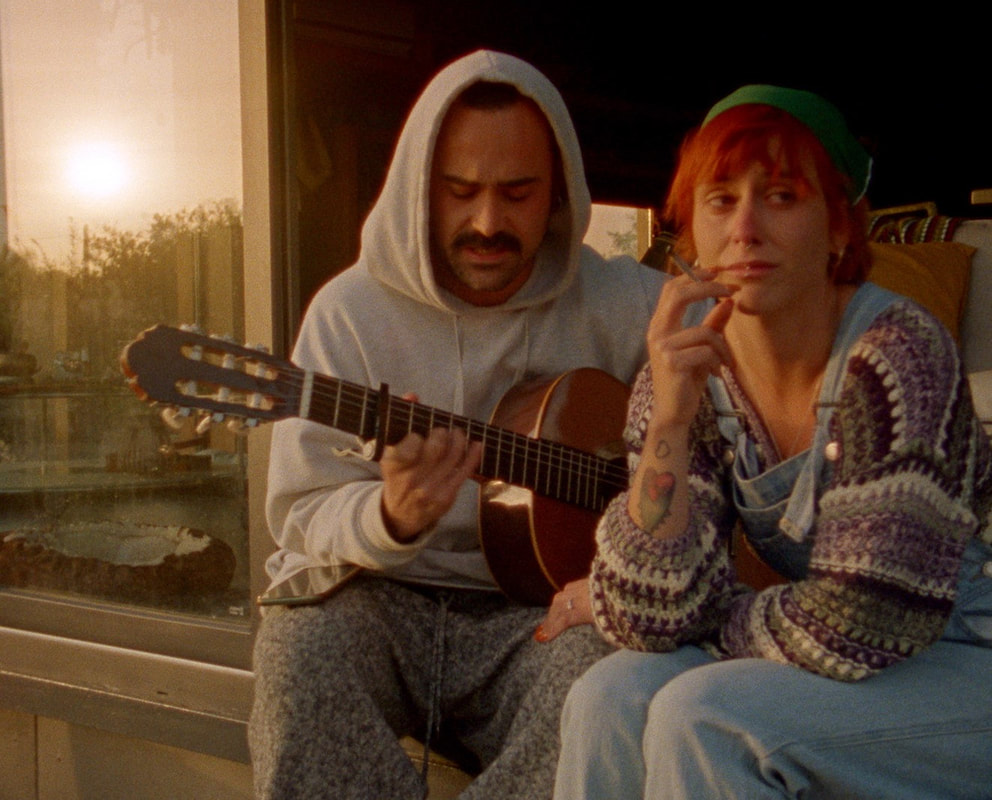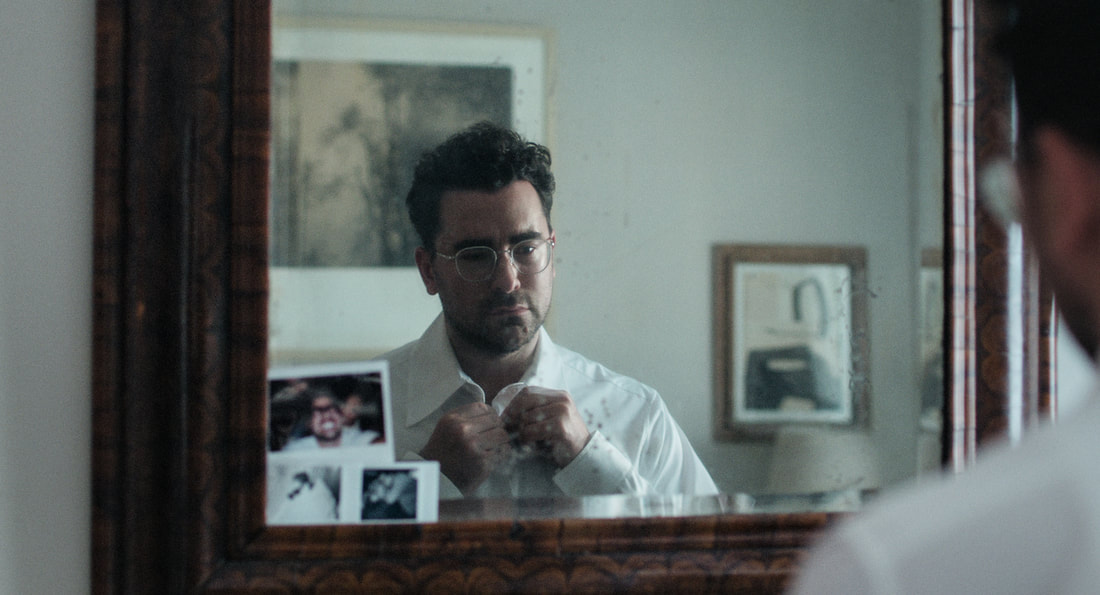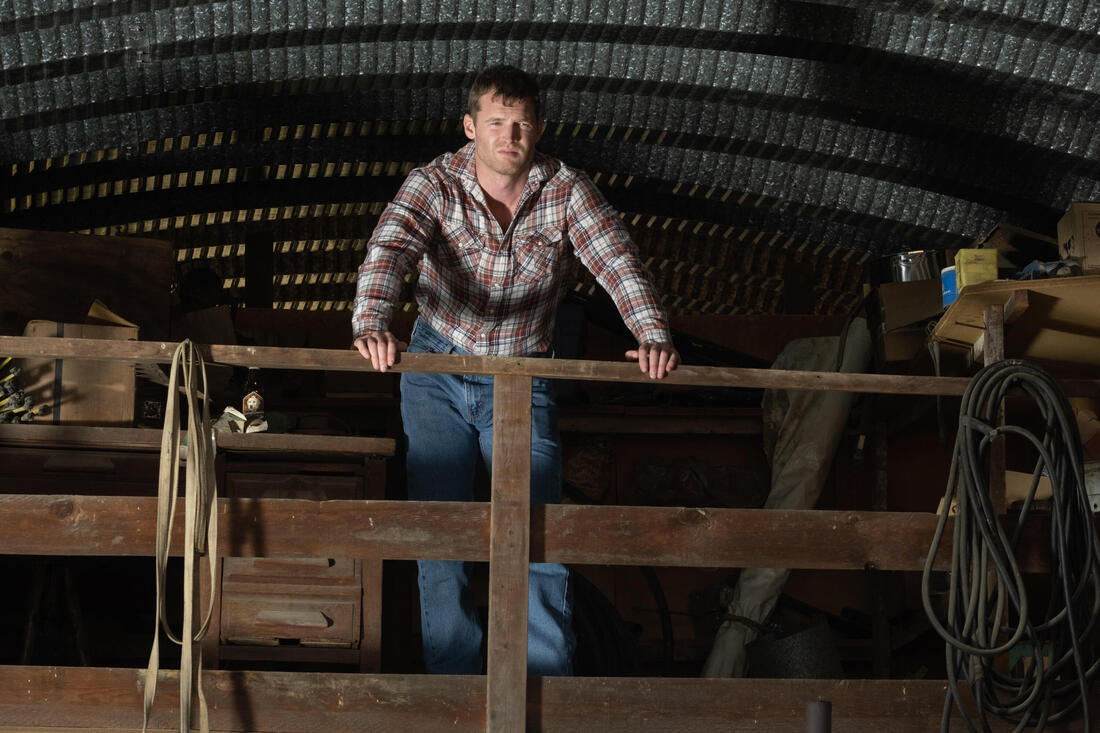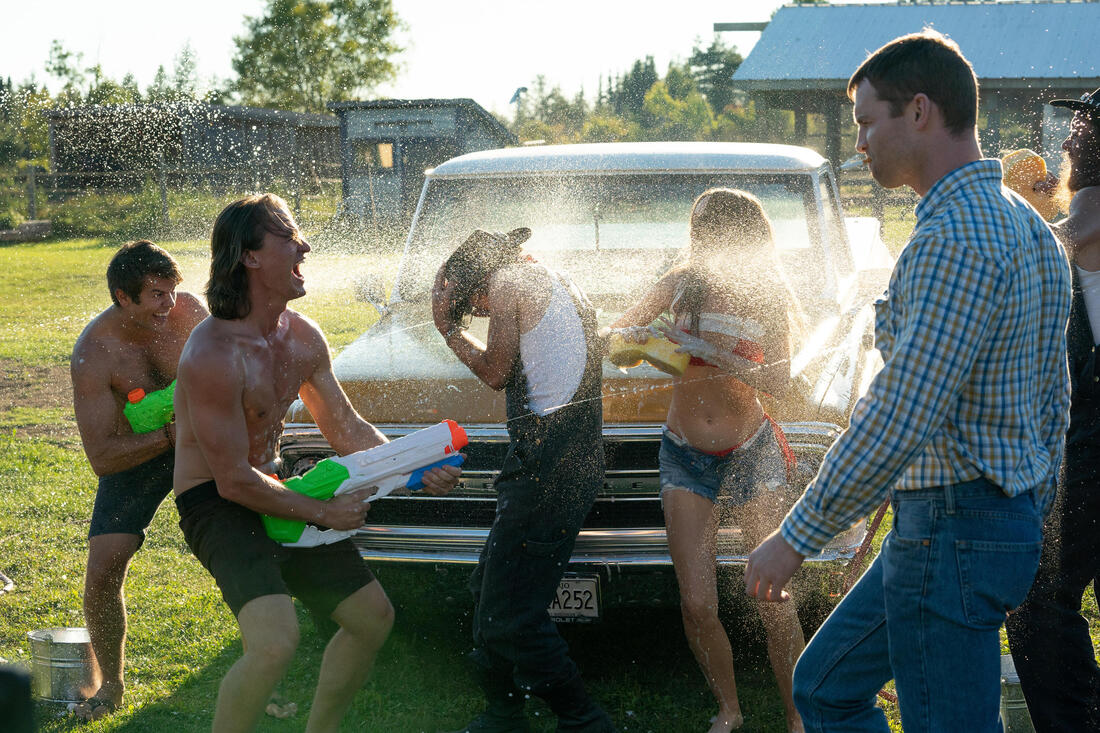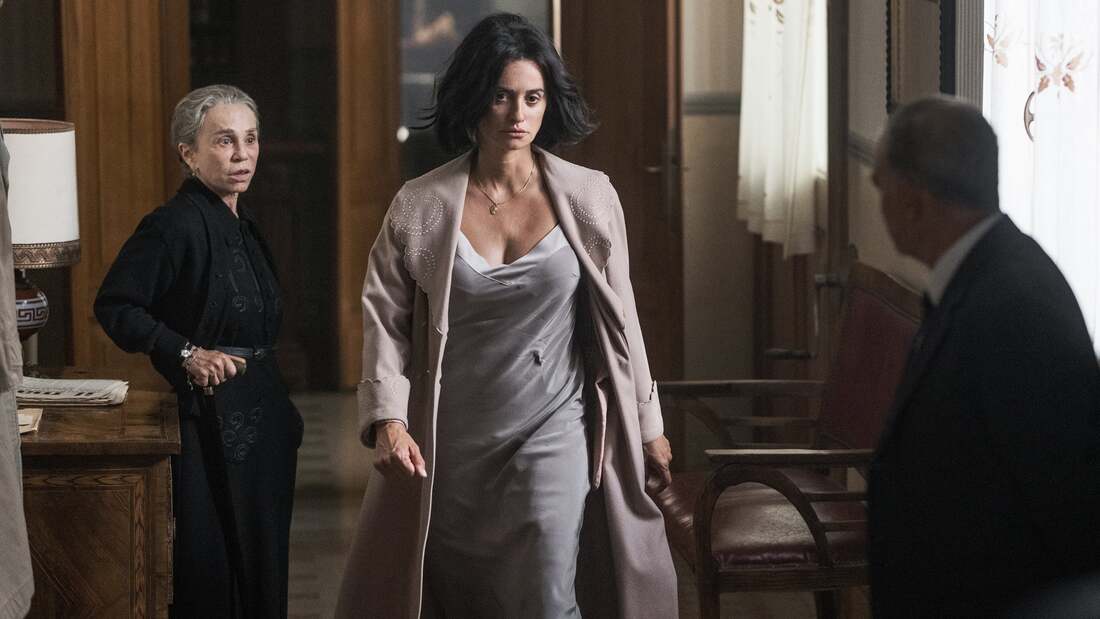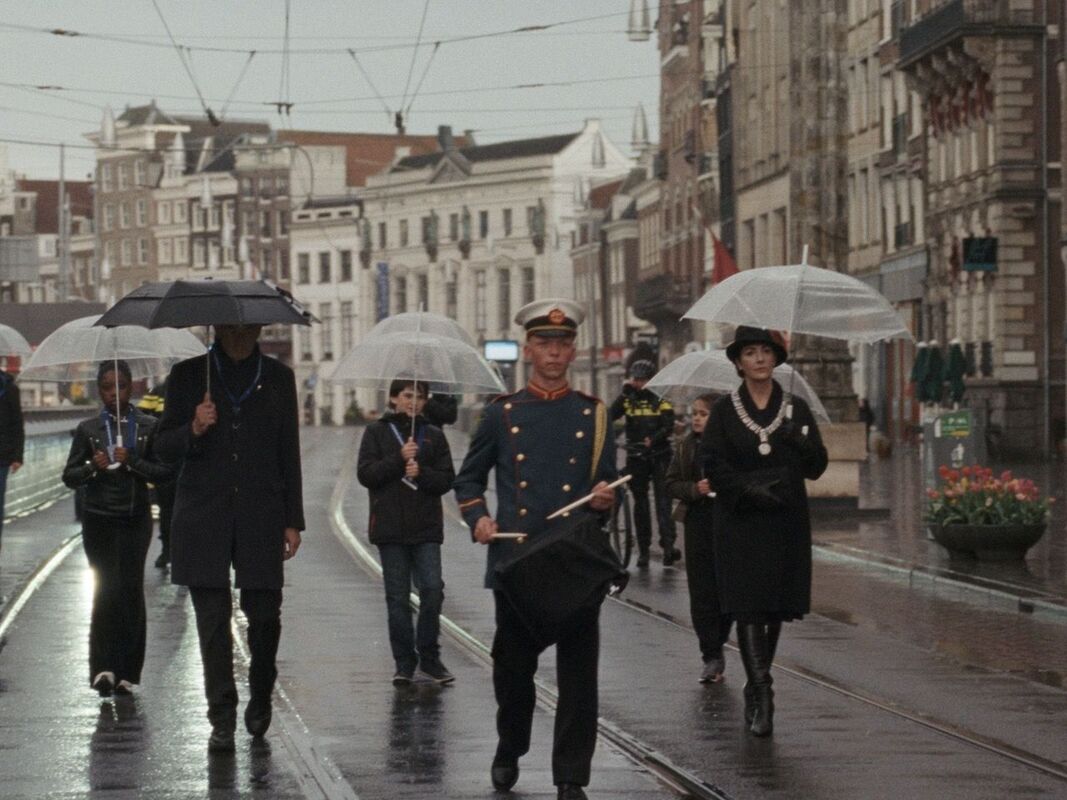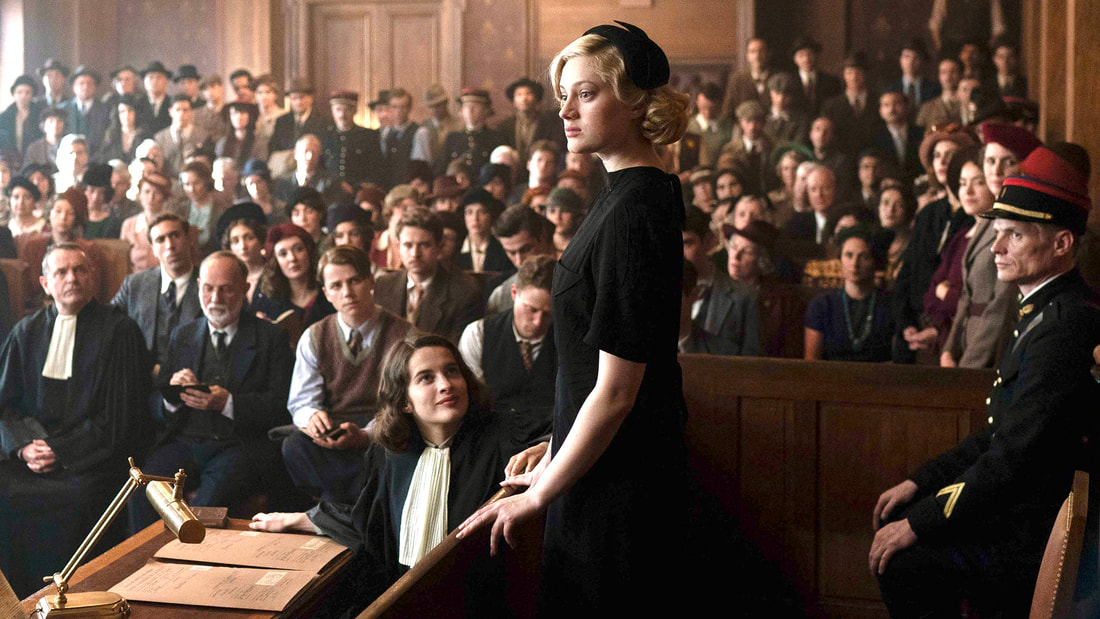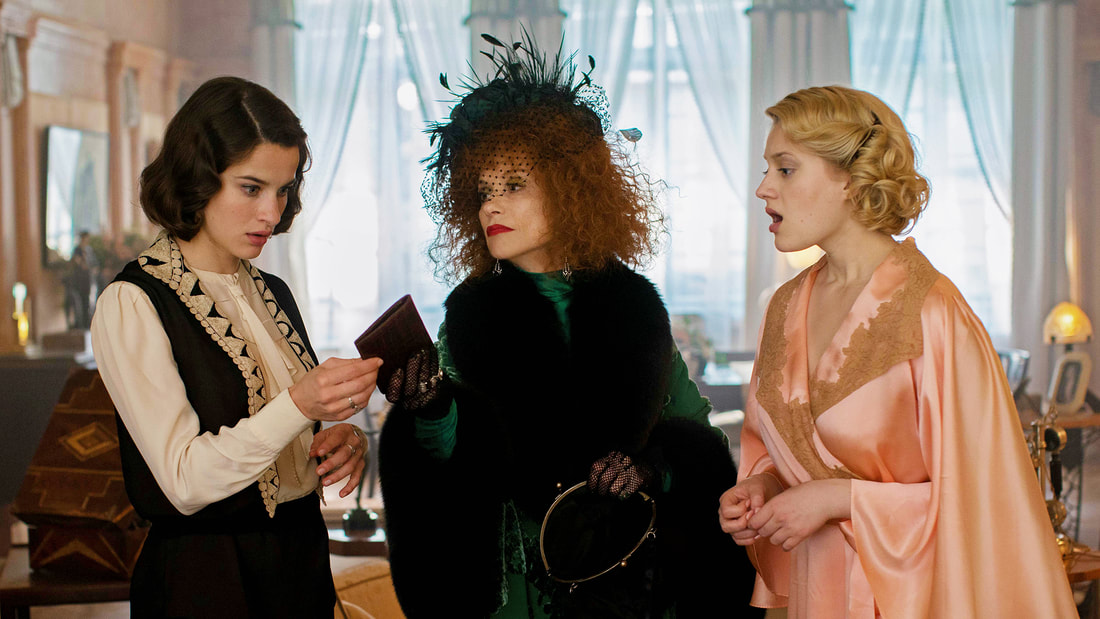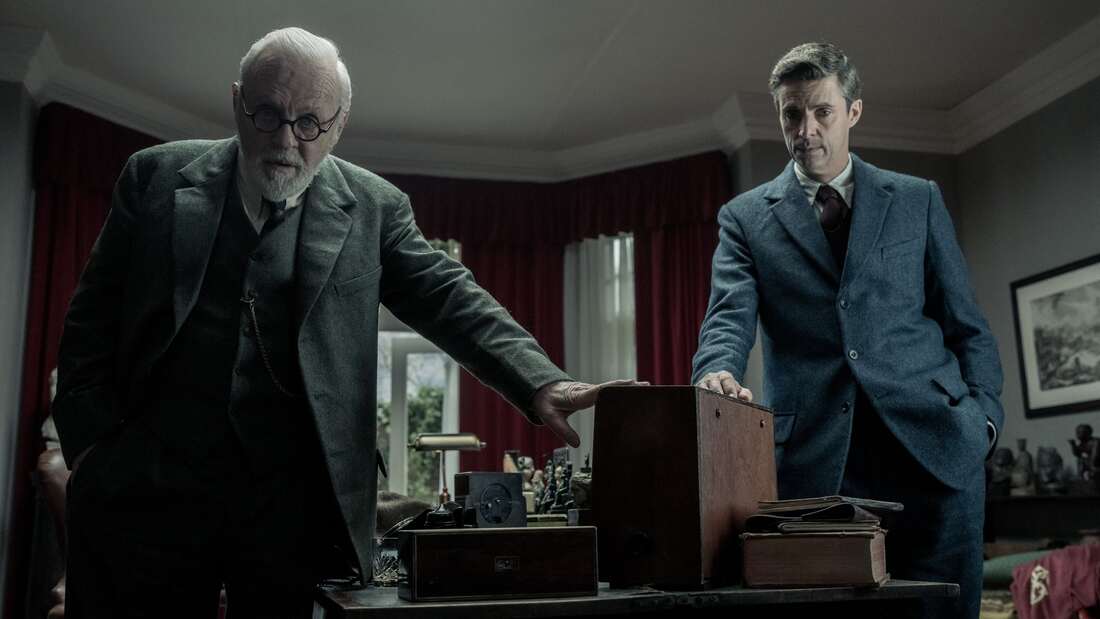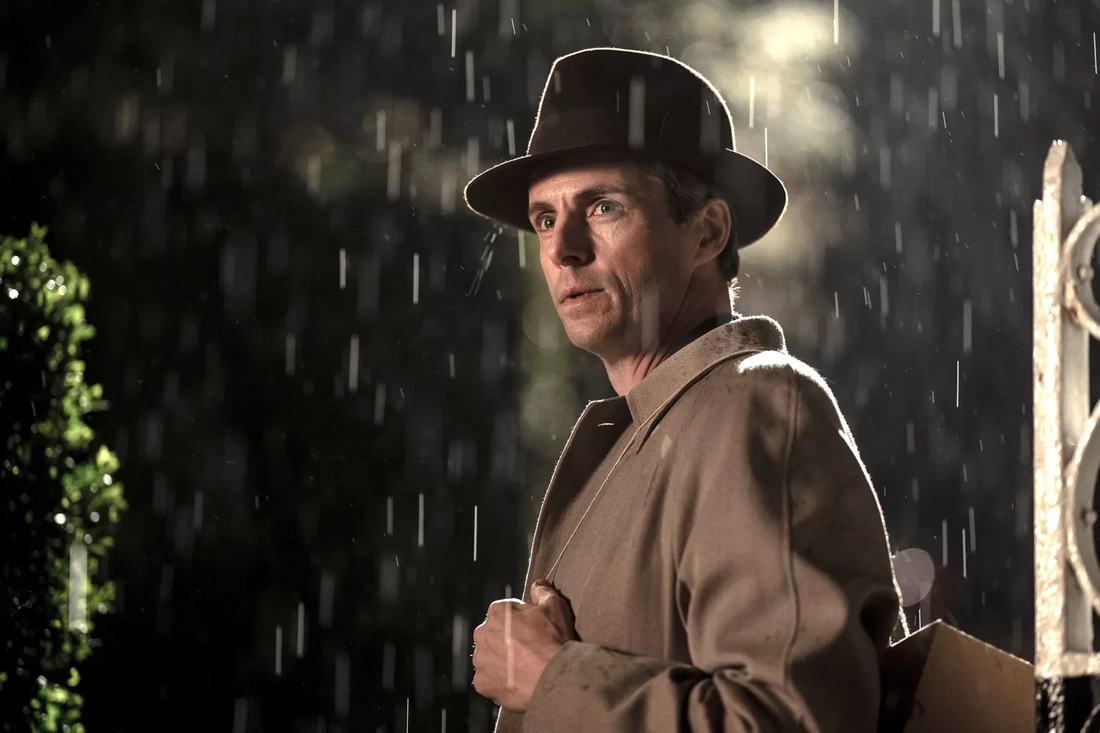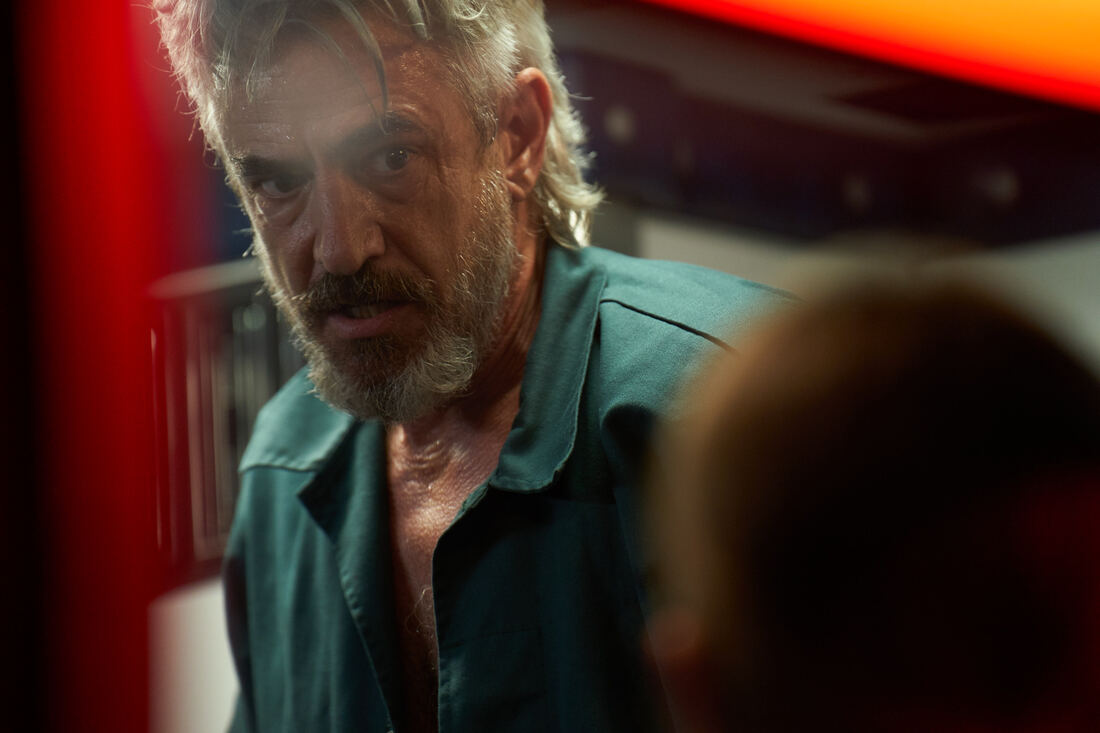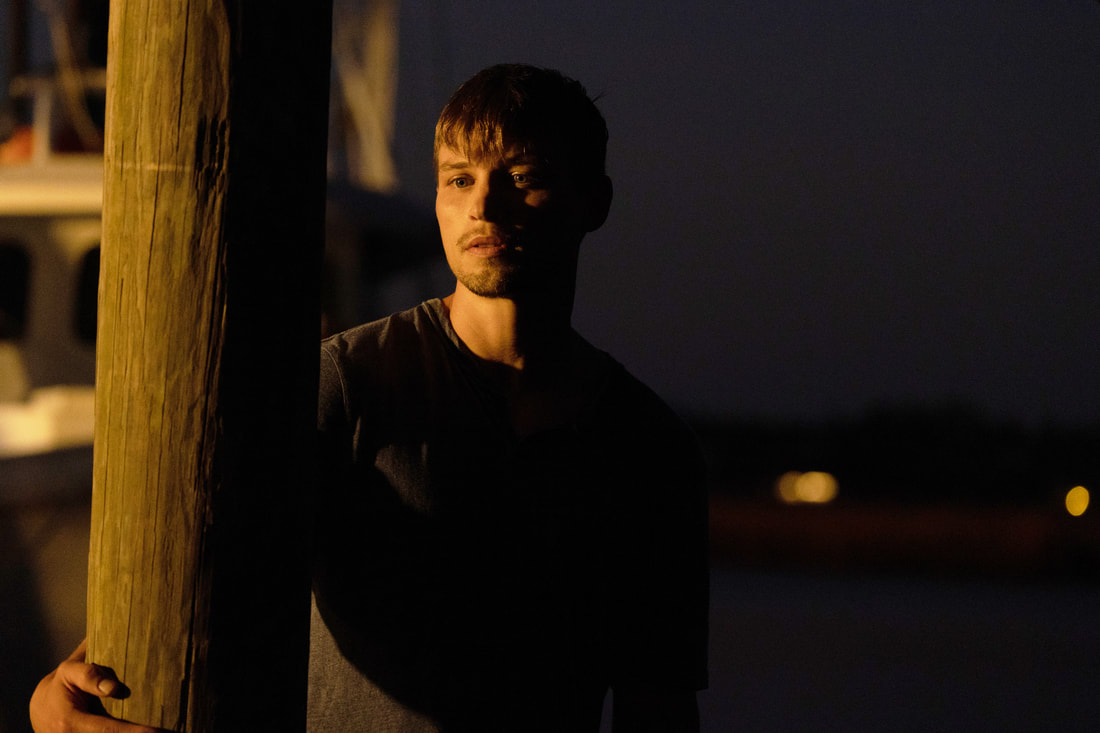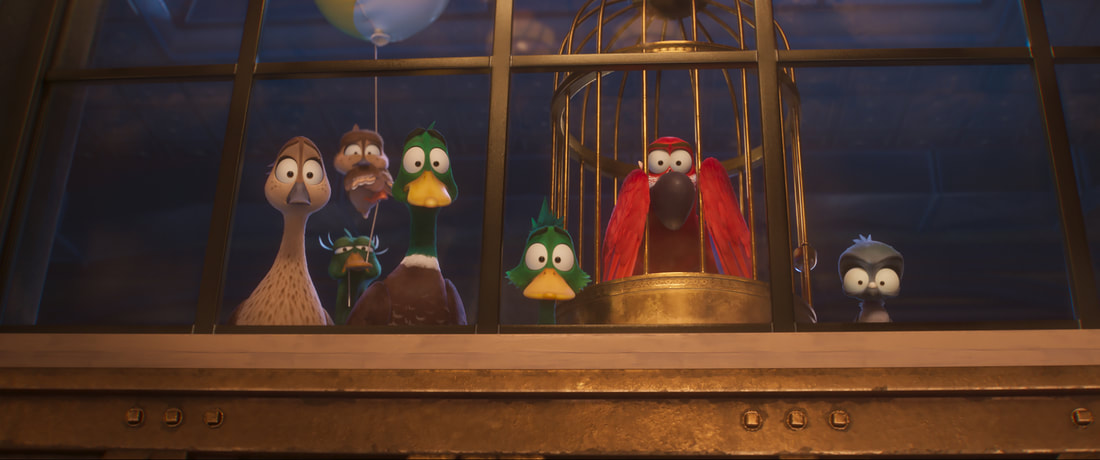21 POSITIONS -- Intimate Relationship Portrait Ruined by Shoddy Storytelling and Dismal Direction12/29/2023 Review by Daniel Lima To watch a relationship play out before your eyes in twenty-one intimate moments, each captured in one take, sounds like an exhilarating idea for a film. Such is 21 Positions, the new Spanish drama from director Néstor Ruiz Medina, with the added twist that the couple at the center makes their living making pornographic content for OnlyFans. In the right hands, a film with this conceit could be a candid and textured examination of the contours of such a partnership. Unfortunately, Medina stumbles on obvious pitfalls that the novel execution creates. The most immediate challenge the premise offers is the number of shots. As limited as it is, the moments chosen to be shown are paramount to how effectively the film charts the young lovers’ lives, and communicates the emotions that play out between them. Here is where Medina stumbles out the gate: no definition is given to their relationship until over halfway through the movie. Though their job is established early on, and some turmoil is hinted at, the film is largely composed of random shots of the two leads driving around, dancing at a club, or lounging at home. These moments are sometimes beautifully captured, often set at magic hour, on gorgeous 16mm film. Yet, they neither elucidate the history of this couple, speak to something deeper about their bond, or imply anything about what is amiss. Withholding information from an audience is certainly within the purview of a filmmaker, but the format begs for economical and precise storytelling. The lack here creates a distance between the audience and the couple whose lives should be laid bare. A brief allusion is made to their different philosophies on the sex work they perform. Still, the nature of their relationship, their personal history, and how they approach their work are impossible to surmise from watching the two lying about in their backyard. Considering that the entire conceit begs to be used to examine the seemingly inherent conflict in turning some of your most intimate moments into consumable content, this is a grave misstep. As a result, when drama begins to actually develop, it is abrupt and disconnected from the relatively happy and open portrait that’s been presented thus far. Here, also, the gimmick hampers the storytelling, as by this point, there’s less than half of the allotted shots left in the tank. This means the most contentious parts of the relationship must play out in nine long takes, and the result feels rushed and lacks any sense of gravity. With a better sense of how the two related to each other and their work, there might be a sense of something lost. Instead, the audience is left wrapping their heads around a brand-new random development before the next one hits. Many filmmakers have seemed to struggle with how exactly to deploy a long take. Often, it seems they become enamored with the fact that they can do one without considering how the framing and blocking of the actors can affect the feel of a scene. Medina’s efforts are a mixed bag, sometimes providing the intimacy the material calls for, other times taking a verité approach that heightens the artificiality rather than allowing a moment to feel truly organic. Again, the fact that a limited number of shots in the first place makes these choices all the more egregious, and every scene that introduces a degree of removal from the central characters is incredibly frustrating.
It should be noted that for a film about a pair of sex workers, one that gestures towards a libertine attitude early on, 21 Positions reveals itself to be notably conservative in what they do, to the point it might be called reactionary. While the film doesn’t outright vilify the characters for making pornographic content, it does create a direct link between it and their burgeoning conflict, with even the dialogue implying that might be a corrupting, insidious influence, or at least an unfulfilling one. Perhaps this could be excused as a consequence of the lack of definition given to their profession or the lack of sophistication in the storytelling in general. Considering how many works about sex workers that don’t run into this problem and the leering male gaze throughout the film, it might also be the case that Medina was simply ill-suited for this material. Ultimately, 21 Positions is a great idea that required a defter touch to execute properly. For this to work, it needed more careful consideration of what to show, more insight into this couple and how their work affects their relationship, and, ideally, a less regressive view of their lifestyle. As disappointing as this was, I don’t doubt that another filmmaker will come along and explore this same milieu to greater effect. I only hope they take an approach as ambitious as this. 21 Positions is available on demand December 29. Rating: 2/5
0 Comments
Review by Jonathan Berk Dan Levy wrote, directed, and stars in Good Grief. The film has moments that are really emotionally affecting and features some very great supporting performances. However, the story sometimes feels aimless, and some sequences make the characters feel insufferable. Good Grief is not flawless, but it has enough good to make it a decent debut feature for Levy. Marc's (Dan Levy) whole life is abruptly disrupted after his husband Oliver (Luke Evans) dies. As time goes by, Marc's friends Thomas (Himesh Patel) and Sophie (Ruth Negga) have been a constant system of support. However, the friends head to Paris to confront some hard truths and do a little soul-searching. There are a lot of moments in the film that allow the actors to give long monologues. The one that works the absolute best is given by David Bradley, who plays Oliver's father. His speech at Oliver's funeral is powerful and somehow still subtle. It's one of the few speeches a character gives that doesn't sound like they're regurgitating a self-help book. This speech also gives Levy the opportunity to react and demonstrate his emotional range. While some of the later speeches feel clunky in their structure, the performances are still very good. Late into the film's third act, Levy, Patel, and Negga sit around a ruined dinner table. Each takes turns spouting armchair psychology about their emotional well-being. "Let me be sorry" and phrases like that are bantered about in rapid succession. It is important for humans to have a grip on their emotional well-being, but this sequence trying to be a big third-act moment feels far less impactful than it should.
In reality, this movie could have used a bit more melodrama. The stakes and the revelations never really hit the emotional chords they should. Levy plays the role maybe a bit too restrained at times for a man who has many reasons to lose control. There is a sequence on a Ferris wheel that really seems perfect for this big escalation. Three people harboring issues with each other are put into a situation they can't easily escape. The film acknowledges this circumstance and then really doesn't do much with it. Things are said, but it still doesn't feel significant or revelatory. Good Grief delivers in a few ways, but mostly by allowing us to see some really good performances from its cast. The overall premise tends to just work, as it's hard not to feel sympathy for someone who loses the love of their life. There are traces of films that have come before dealing with love and loss and that sense of continued discovery after they are gone. Yet, this one doesn't quite feel as impactful as those that came before. Good Grief hits theaters on December 29 and streams on Netflix beginning January 5. Rating: 3/5 Review by Jonathan Berk Jared Keeso is a gift to humanity and all things funny. While every member of Letterkenny’s crew delivers year after year, the creative vision of Keeso continues to triumph. The fact that Season 12 of Letterkenny is the final season is probably for the best. The six episodes focus heavily on the fear of being “stuck,” and there are plenty of examples of TV shows overstaying their welcome. While we have likely not seen the last of some of the characters, as Keeso has a deal in place for more content, this feels like a fitting farewell to the show as it stands. The three core groups of Letterkenny — the hicks, the skids, and the hockey players — are on full display for this season. However, the Degens are on the rise as they jockey their way into a prominent position this season. The usual Letterkenny format is firmly in place, with bits taking center stage while a continuing plotline plays out in the background of the comedy. The dynamic of the core group of “hicks” — comprised of Wayne (Keeso), his sister Katy (Michelle Mylett), Daryl (Nathan Dales), and Squirrelly Dan (K. Trevor Wilson) — is threatened. Katy is considering moving to Mexico, Dan is drawn towards a Mennonite lifestyle, and Daryl’s differences push him towards a new friend group. Wayne’s relationships with his friends and other members of Letterkenny are on his mind, as is where he fits into everything. In true Letterkenny style, the humor is often silly and goofy, yet it finds ways to resonate emotionally. While constantly poking fun at the archetypes of the characters, the substance of the humor is far more forward-thinking than one may expect. Episode 1 introduces a stand-up night at Modean’s, which allows for some commentary on stand-up comedy while simultaneously showcasing each of our central character’s talents. Reilly (Dylan Playfair) and Jonesy (Andrew Herr), the hockey guys, initially have this season of hooking up with their “Billet” sisters, which is a Canadian term for “the daughter of the family a young hockey player lives with, who is around the same age as players" (according to Urban Dictionary). However, they’re given time to reflect on who they are and acknowledge that maybe it’s time to grow up even further.
The Skids — centered around Stewart (Tyler Johnston) and Roald (Evan Stern) — also find themselves stuck. They’ve exhausted their sales of Snooters and are looking to up their game. However, it takes a few ups and downs to finally help focus their attention on redemption. This leads to a great callback in the final episode of the final season. There have been so many jokes, characters, and fighters over the 12 seasons of Letterkenny, and almost all of them get some love in the final season. The show does a great job of referencing while not simply rehashing the memories of the things that came before — a trope many final seasons get hung up on. Instead of overstaying its welcome, Letterkenny tugs at the heartstrings while simultaneously causing its fans to bust a gut laughing. The final season of Letterkenny is now streaming on Hulu. Rating: 5/5 Review by Cole Groth A new champion has emerged between Adam Driver’s two biopics where he puts on a ridiculous Italian accent in Michael Mann’s Ferrari. This isn’t to say that the film is a masterpiece — neither one is. But, where House of Gucci was a dreadfully stupid movie that never found its footing, it has a somewhat clear vision and an incredibly compelling story. Here, Mann directs the life of Enzo Ferrari, splitting the film into two distinct pieces. The first is a slightly dull, soapy story of the automotive mogul, with the second being a thrilling action piece about racing. The second piece works a lot better than the first. Enzo Ferrari was an incredibly complicated and powerful man. In this film, we see his chaotic life choices play out: a decade-long affair has forced him into a double life with his wife, Laura (Penélope Cruz), and lover, Lina (Shailene Woodley). After the death of his first child with Laura in 1957, his declining marriage with her, and the impending demise of his company, Enzo decides to enter his team into the Mille Miglia to bring the Ferrari brand back into the limelight. Driver, Cruz, and Woodley are all pretty fantastic in their roles. Driver and Woodley are hindered by these gaudy Italian accents, but Cruz shines in every way. The three weave a complicated love triangle that feels authentic. It’s one of the best portrayals of an affair I’ve seen in a movie because of how the three interact. Enzo cares for both Laura and Lina while engaging in his double life. He’s in a complicated relationship with the two that works because of his chemistry with each actress. There’s a scene toward the film’s end where everything comes to a head. It’s one of the most shocking scenes in a biopic in a while, and I’ll refrain from spoiling it because it’s the moment where the film moves from being a somewhat average biopic to something much better. Mann spends most of the movie with as little grandeur as possible. He strips away any of the bells and whistles that directors like Ridley Scott or Adam McKay bring and, in a scene, decides to bring them back together. It’s an incredible moment and one of the better ones of the year.
The film’s editing is the biggest boon to it being a masterpiece. Mann struggles with balancing the exciting racing stuff with the dramatic interpersonal relationships. Both are good on their own but are so juxtaposed that they feel like two separate movies. There is also some iffy special effects stuff, most notably in the earlier-mentioned shocking scene, that took me out of the film’s realism, but otherwise, the production design is very well done. Ferrari is a little all over the place. Anchored through great performances from the leading three and some killer racing sequences, this biopic of a larger-than-life personality is mostly a winner. This will undoubtedly be a controversial watch for many, but it’s certainly not a bad film. It’s been eight years since Mann released his last movie, and while this one is a little underwhelming, his return to film is a Christmas present of its own. Ferrari releases in theaters on December 25. Rating: 3.5/5
Review by Sean Boelman
Steve McQueen’s documentary Occupied City is an ambitious work, and much of it is quite effective. However, despite the the film clearly coming from a well-meaning place, and being incredibly well-executed, some aspects of the message are frustrating in the conjectures they try to make.
The documentary is based on Bianca Stigter’s book, Atlas of an Occupied City, Amsterdam 1940-1945, which tells the story of the Nazi occupation of the Netherlands through images of the city today. It’s a fascinating concept, and Stitger and McQueen (who are married) clearly have a lot to say with this experimental work, but it does not always work. From a purely technical standpoint, the movie is impressive. Eschewing archive footage for fly-on-the-wall modern-day captures, McQueen expertly uses juxtaposition in brilliant ways. The editing by Xander Nijsten is among the best in any film this year, fiction or nonfiction, in creating meaning — even if the meaning it creates is occasionally unfortunate. The aspect of the movie that seems likely to alienate most viewers is its length. Clocking in at over four hours, the film gets its point across somewhat quickly, and while the remainder of the runtime is still effective, impatient viewers could grow weary of the experience. Mercifully, there is an intermission, but even so, it’s a taxing, devastating watch.
The narration by Melanie Hyams is somewhat dry, but it accomplishes precisely what it is intended to do. Her occasionally monotonous description, taken from Stigler’s nonfiction book, describes many atrocities in extreme levels of detail but does so in a way that reinforces the sheer level of horror we should feel.
However, the movie’s technical prowess can only carry it so far, as its thesis has mixed results. At many points, it seems that the film intends to purport a comparison between the lockdown in Amsterdam during the COVID-19 pandemic and the confinement of Jews in concentration camps during the Holocaust. This comparison is frankly baffling, and without this aside, this could have been a perfectly harrowing documentary. However, the movie’s brash ignorance in this regard is enough to leave a bad taste in viewers’ mouths. It really is a shame that these portions of the film are so frustrating, as the rest of the movie’s political message is incredibly effective. Apart from the COVID stuff, the film is also interested in creating a connection between the presence of white supremacy in modern-day society and the Nazism that gave way to the Holocaust. This urgent call to action is where McQueen thrives most. Occupied City has all the makings of a fantastic documentary. Unfortunately, a frustrating aside in its arguments prevents it from having the impact it could. Steve McQueen is undeniably a fantastic image-maker, but with this documentary being as long as it is, it’s hard to recommend through all of its problems. Occupied City hits theaters on December 25. Rating: 3/5 Review by Joseph Fayed Francois Ozon is a prolific director who has proven he is capable of making films in a variety of different genres. His latest feature, The Crime Is Mine, is a screwball comedy that pays homage to the genre widely popular in the 1930s. Impressive performances from actors not traditionally known for their comedic work anchor this film and remind you of how good acting looks like it can be fun sometimes. In 1930s Paris, Madeline (Nadia Tereszkiewicz) is a struggling actress who lives with her friend Pauline (Rebecca Marder), a struggling lawyer. Both can't seem to find consistent work and are months behind on paying their rent. An unexpected opportunity arises when a theater producer who behaved inappropriately towards Madeline is found dead. When Madeline is accused of his murder, she and Pauline seek to deliver the most magnificent performances they can to revive both of their careers. But with great fame comes the greatest responsibility neither of them expected- facing the truth of what actually happened to the producer. Loosely based on a 1934 play later adapted into two American films, this screwball comedy's most significant adjustment is its feminist edge. Similar to Ozon's previous work, sexual repression is nowhere to be found. It's ironic, given this film is inspired by and set during the era of the Hays Code, but that is not to say the script suffers from limitations. The focus on fame and the friendship between Madeline and Pauline never seem to flame out. The cast dynamic elevates the wit and humor on screen. The chemistry between our two female leads is certainly believable, and none of the characters feel like ego-driven caricatures. They play off each other, which helps the story feel better-paced instead of a drag to watch. Most of the humor in the film is witty and is supported by good delivery and comedic timing. With its ridiculous story as a backdrop, there is no way that this won't be intended as camp. The biggest example of this being an advantage is Isabelle Huppert's character Odette Chaumette, who appears in the film's second half. Odette is an aging stage actress who finds herself at odds with Madeline and Pauline. Huppert is over the top and the closest we get to chaotic evil. A particular line of dialogue that starts with the letter C that is both said to and used by Odette is something that will stick with me for years to come because of how out of left field it was. She shines in her role and goes against type cast, playing someone who is calculated but not cold-hearted. The tension between the three of them builds off of the course of action surrounding the catalyst and makes the ending feel full circle.
The Crime is Mine is a fresh take on a century-old style of comedy from an innovative director. It's easy to consider this the spiritual successor to Ozon's previous film, 8 Women, because of how in both films, the cattiness from its leading ladies accused of a shocking crime is compelling to watch. It gets campy towards its conclusion, but it's hilarious from start to finish. If there is ever a French revival of Chicago, I know who should direct, and I also have three actresses in mind as Roxie, Velma, and Mama Morton. The Crime Is Mine hits theaters on December 25. Rating: 5/5 Review by Cole Groth Anthony Hopkins has had an incredible career resurgence in this last decade. After receiving the Oscar for his pitch-perfect turn as a dementia-addled father in The Father and becoming the oldest-ever winner of an acting Oscar, he's pumped out eight films. While these films have varying quality, one thing is undeniable: he's one of the greatest living actors. Freud's Last Session is similar to his recent films. It's a decent movie with an interesting enough script, but without Hopkins, it would fail. Freud's Last Session is an adaptation of a stage play based on a book called The Question of God by Armand Nicholi. It follows a fictional meeting between the founder of psychoanalysis, Sigmund Freud (Hopkins), and British author C.S. Lewis (Matthew Goode). The two engage in a series of back-and-forth discussions on the nature of God, politics, sexuality, and a great deal of other things. This comes at the end of Freud's life, giving him plenty of time to reflect, making this somewhat of a biopic of one of the most influential psychologists. One of the problems of this kind of psychological discussion in film is that too many things are tackled, leaving many topics decidedly underdeveloped. This is where writer/director Matthew Brown misses the mark. It feels a little like he's trying to inject his own beliefs into those of these men, who have been very intricately detailed, and at times, it's too silly to take seriously. Freud and Lewis's theological discussions are incredibly corny in certain moments. That being said, there's a lot to take out of this. It's fun to play along with the film, listen to both sides of the argument, and see who you agree with. As I've established, this film works primarily on Hopkins' performance. This is pretty much two hours of scene-chewing, and for those interested in these types of stage plays that consist of almost only dialogue, this will hit the right mark. Hopkins is balanced nicely with Goode's excellent performance as Lewis. The two spars at a believable pace and excellently embody their characters. Liv Lisa Fried, Jodi Balfour, and Jeremy Northam make up the supporting cast and are decent enough, neither sticking out for being particularly strong nor weak in their roles.
The ultimate issue with Freud's Last Session is that the script doesn't feel genuine enough. For starters, it feels like a pretty standard day in the lives of Freud and Lewis. The two engage in some interesting debate and leave. It's not quite impactful enough to feel like a movie. The debate the two engage in feels too blunt, especially given how they masterfully used language in their times. It's clear that this was written from a modern perspective, and sometimes, that makes the film feel too silly to be fully enjoyable. That said, there's still a lot of interesting stuff tackled in the screenplay, making it a net positive. If you're a lover of Anthony Hopkins eagerly waiting for another outstanding performance from him, you won't be disappointed with this aspect of Freud's Last Session. The script manages to squeeze in a lot of psychological debate within two hours, but it's not polished enough to be as good as its potential. It's a little corny, overlong, and slightly dull, but it's still an interesting enough movie worthy of a watch for Hopkins alone. Freud’s Last Session releases in theaters December 22. Rating: 3/5 Review by Daniel Lima Can we ever truly move past our own mistakes and follies? What does it take to excise our demons? These are questions that Breakwater, the latest languid character drama-turned-thriller featuring Dermot Mulroney, raises and never interrogates in a meaningful way. While the setting offers a glimmer of hope that this might be interesting, it reveals itself to be a rote, plodding, and empty film, more interested in narrative twists than actually being about anything in particular. Darren Mann plays a recently released prisoner who, as a favor to a fellow inmate, breaks parole and crosses state lines in search of a woman who might be his friend's daughter. Doing so sets off a series of events that jeopardizes not only his freedom but the lives of all those he touches as well. Despite that harrowing description, most of the film plays out as a drama, with no overt sense of danger beyond the expectation that there has to be more to the story than what is presented. If there's anything good to be said about Breakwater, it's that it does a decent enough job establishing its setting, the waterlogged coast of North Carolina. There is a sense of history to the small town the film explores, touched by the legacy of slavery and isolated from the bustle of the larger world. With some more fleshing out, the character of the place might have made for a more compelling watch. Sadly, the film is narrowly focused on the drama surrounding the three main characters, to its detriment. Mulroney is the standout, turning in another decent imitation of Mel Gibson with a brusque energy that could quickly turn dangerous. Mann projects the dimwitted charm his role calls for, and Alyssa Goss does her best with a role that feels more like a narrative device than a real person.
The emotional core is the relationship between Mann and Goss, who the audience is supposed to buy as two people naturally attracted to each other. It never quite takes, with the two lacking even the tiniest spark of chemistry between them. Everything else, from the frequent calls to Mulroney to the laborious investigation led by Mann's parole officer, feels like filler. These annoyances take the film away from the coastline, which is its sole distinct strength. About halfway through, the story takes a turn for the mysterious, revealing certain falsehoods and forcing the main characters to react to shifting circumstances quickly. Very quickly, it becomes clear that the film's primary concern is topping every revelation with a new one. The nature of those revelations gestures towards deeper themes, but they end up being narrative stepping stones. With nothing to cling to emotionally and no reason to care, the film outstays its welcome well before the climax. Breakwater is a hard film to discuss because there's so little to talk about. Where this could have potentially been a slice-of-life crime drama, reveling in the idiosyncrasies of its unique setting, it instead settles into a dull thriller centered on characters it's impossible to feel anything for. If there is anything to commend it for, it's only taking up ninety-seven minutes of the precious time I have on this Earth. Breakwater is available in theaters and on demand December 22. Rating: 1/5 Review by Camden Ferrell The 1972 Andes flight disaster is globally known and has been referenced and adapted in numerous pieces of media since then. The newest film from J.A. Bayona is the most recent attempt to tell this harrowing story of survival. Society of the Snow had its premiere at the 2023 Venice International Film Festival, and it is the Spanish submission for Best International Feature for the upcoming Academy Awards. An impressive feat of storytelling and visual effects, this movie will shock you with its brutality and surprise you with its abundant humanity. A Uruguayan rugby team finds themselves embarking on a trip to Chile with other passengers when the plane collides with the Andes mountains, killing several and stranding the rest. In unbearable temperatures and with minimal food, the remaining survivors must battle the elements and grapple with their own morality in order to persevere and live to see another day. This story is widely known, but it’s still fascinating to get an in-depth look at what they experienced on a day-to-day basis and learn more about their stories and humanity. Based on Pablo Vierci’s book of the same name, this movie was written by Bayona, Nicolás Casariego, and Jaime Marques. These writers do a great job with balancing the different conflicts in the movie. It’s a classic tale of man vs. nature while also being an emotional saga of man vs. self. The characters feel fleshed out which make the brutal elements they face feel more brutal and visceral. The emotional moments are earned thanks to the great and subtle characterization done by the writers. It has some great moments of dialogue throughout as well which keeps this movie feeling fresh despite taking place in mostly one location. This movie thrives off of its talented ensemble with great chemistry. It would be remiss not to give credit to everyone in the cast for bringing these characters to life. However, the highlights of this movie are Enzo Vogrincic Roldán, Matías Recalt, and Agustín Pardella. They have the most screen time of the cast, and they are commanding in their respective roles. They perfectly portray the horror, desperation, and sorrow of these characters. They’re captivating to watch and round the movie out nicely.
While the humanity of this story is on full display, one must also commend the amazing VFX work of this film. Throughout the movie, everything feels so immense in scale and spectacle, but the effects maintain the film’s realism which heightens its brutality. In addition to this, Pedro Luque’s work as a cinematographer is brilliant from start to finish, featuring some creative shots and imagery. And Michael Giacchino’s tender and emotional score rounds out the film beautifully. Bayona has outdone himself with Society of the Snow. It’s a chilling and gripping tale of survival that audiences will have a hard time looking away from. It is a technical marvel and a storytelling marvel as well. It’s one of the finest survival thrillers in recent years, and a heartfelt testament to the survivors and victims of this horrible tragedy. Society of the Snow is in theaters December 22 and streaming on Netflix January 4. Rating: 4.5/5
Review by Sean Boelman
Illumination made a name for itself with the Despicable Me franchise and has been chasing that same success since. The studio has had some one-off successes, but many of its outings feel like attempts to kick off a new series. Their latest, Migration — from Ernest & Celestine director Benjamin Renner — is a refreshingly self-contained little adventure, making this a fun outing for the whole family.
The film follows a family of mallards who encounter unexpected obstacles when they embark on their first-ever migration. What they hoped would be the vacation of a lifetime turns into an exhilarating adventure. With a runtime of just over 90 minutes, there’s not a lot of breathing room, and the story moves from one encounter to the next, but the pacing flying by is a great choice for children and parents alike. With a script by Mike White, it should be no surprise that Migration contains a wide variety of humor. Although White has a few stinkers (*cough* The Emoji Movie *cough*), his more acclaimed work (The White Lotus, School of Rock) is charmingly funny. The humor in this family-friendly adventure has some lowbrow and slapstick jokes, but also a few scenes — such as one rousing dance sequence in the middle — that are unexpectedly creative. What is more surprising about Migration, though, is how shockingly affirming it is. On its surface, the message is relatively simple: letting go of one’s fears and embracing positive risk. Yet, this encouragement to break free of one’s nest is inspiring — especially if you are someone who has settled into comfort for far too long.
Surprisingly, the voice cast isn’t particularly distinctive in their roles, even if they are good. The only standout is Carol Kane, who brings her signature flair to her scene-stealing part. The main cast — Kumail Nanjiani, Elizabeth Banks, Awkwafina, Keegan Michael-Key, Danny DeVito, and Isabella Merced — are all fine, but none make the role their own like Kane.
Instead, the movie gets tremendous goodwill from how much the audience buys into this family dynamic. Despite the characters exhibiting all the cliches and tropes of the traditional nuclear family, it’s hard not to be at least endeared to them. There are never really any stakes — it is a kids’ movie, after all — but audiences will still be rooting for their triumph. In terms of the animation, the focus is firmly on the beauty of the locations. The visuals do a great job of inspiring awe at the majesty of the locations we are greeted with. As for the character design, it’s mostly straightforward, very polished, and extremely cute — in other words, exactly what you would expect from an Illumination flick. Migration is a pleasant surprise from the folks at Illumination. Although it may not offer much in the way of originality, it does have charming characters, an inspiring message, and, most importantly, plenty of laughs. In a holiday season where most of the family-friendly offerings have underwhelmed, parents and their young ones should flock to Migration. Migration hits theaters on December 22. Rating: 4/5 |
Archives
July 2024
Authors
All
|
|
|
disappointment media
Dedicated to unique and diverse perspectives on cinema! |


